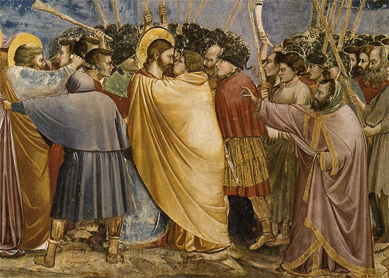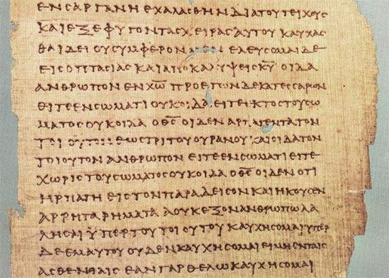Well, the thing is in the New Testament you’ve got four Gospels: Matthew, Mark, Luke, and John. Three of them are very similar and you can look at them together in a book that’s called a Synopsis. So you can get them in columns together—Matthew, Mark, and Luke—so they’re called the Synoptic Gospels. And the basic issue that’s going on with the synoptic problem is: how do they relate to one another? Someone’s been copying off someone.
And the question is: has Matthew and Luke been copying off Mark? Has Mark been copying off Matthew and Luke? Or are all them dependent on documents that we no longer have? So the synoptic problem is this mystery of how it is that the Gospels relate to one another.
How does the Gospel of John relate to this?
Well John isn’t a Synoptic Gospel because it’s so different in terms of its structure, in terms of its content. It doesn’t have much of the same actual material. And even when it does have the same material, it doesn’t use the same words to describe it. So if you look at the feeding of the 5,000, which is in John’s gospel, he uses even a different word for fish than the word that’s used in the Synoptic.
Why does it matter who wrote the Gospels and when?
Well, for the early church, they wanted to demonstrate the Gospels were written by apostles because they thought that God had appointed them to write it; they had authority to write it; and that they were eyewitnesses of the events. But what you do when you’re doing history is you have a look carefully and work out if it was written by these kinds of apostles and you try to ascertain when these things were written. And any historian wants to know how early a document is. It’s one of the key things. If you’re doing any kind of historical research it’s how early does the document go. Not necessarily the case that earliest is always best. But it is the case that a document that is from an earlier period is one that you will just spend a little bit more time working out whether it has something to say that’s closer to the events in question.



